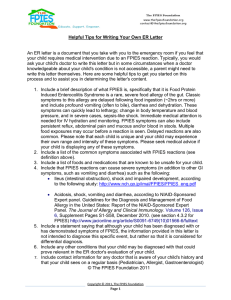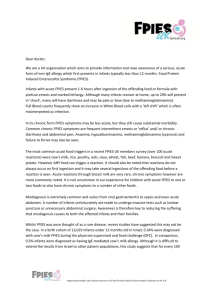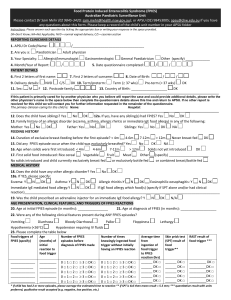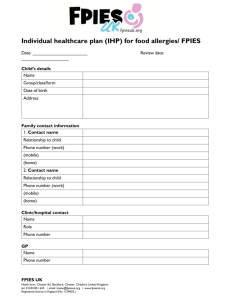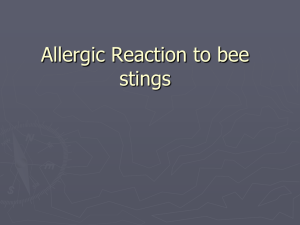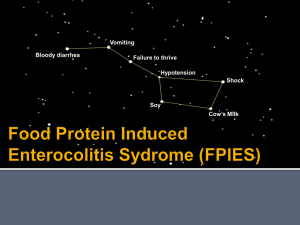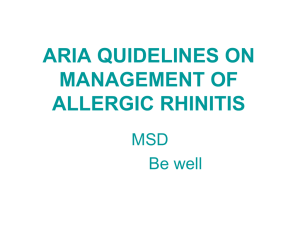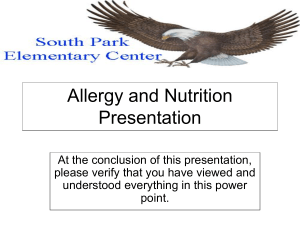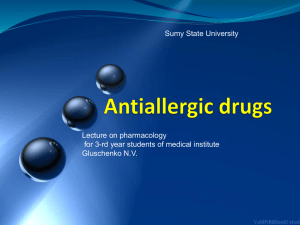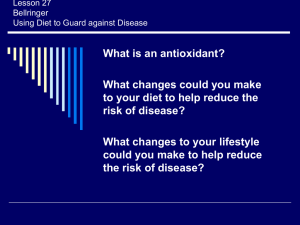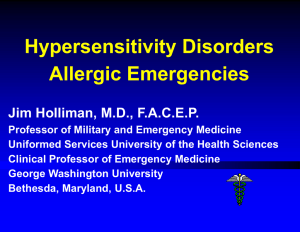Infant Proctocolitis Part 1
advertisement
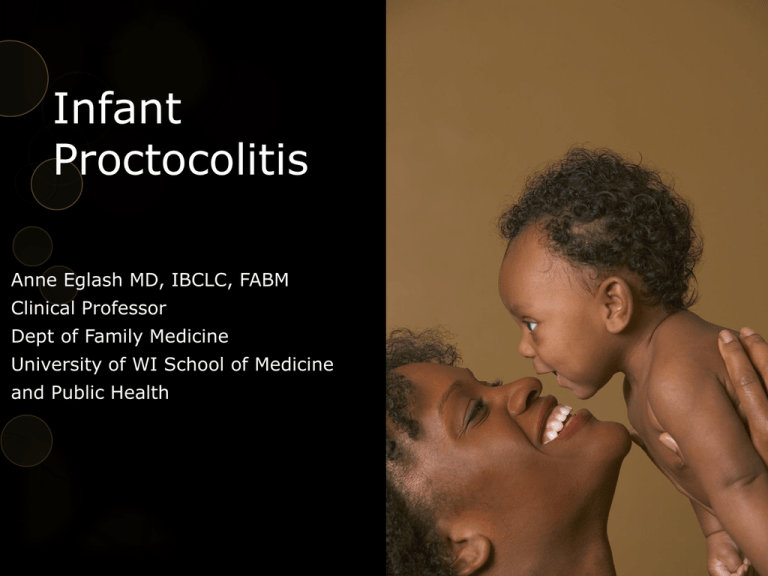
Infant Proctocolitis Anne Eglash MD, IBCLC, FABM Clinical Professor Dept of Family Medicine University of WI School of Medicine and Public Health What is Allergic Proctocolitis? An immune-mediated hypersensitivity GI disorder Not mediated by IgE Occurs in the large bowel Instigated by food allergens in the gut Maternal dietary allergens less likely from allergens in formula or solids IGE Mediated Gastroenteritis Exposure to certain antigens causes release of allergic inflammatory mediators. Nausea, vomiting, diarrhea, abdominal pain Symptoms occur within minutes Other classic allergic symptoms such as wheezing, rash, swelling, hives anaphylaxis Eosinophilic esophagitis, gastritis, gastroenteritis GERD, refusal to eat, poor growth, irritability, poor food tolerance Expert Rev. Immunol 2011 7(3), 317-327 Food Protein-Induced Enterocolitis Syndrome (FPIES) May be acute or chronic presentation Sudden nausea/vomiting/dehydration Can be severe leading to shock Weight loss or failure to gain weight Abdominal pain, low serum protein, malabsorption No diagnostic test available Often have to rule out infectious disease or toxin exposure Not typically related to breastfeeding Often reported in infants fed cows milk or soy based formula Many different allergens Milk, soy, poultry, grains, veggies (any food can do it) Rice is the most common solid food Reaction starts after several exposures to the protein Improvement within days of removing offending food Often starts before 9 mo, usually resolves by age 3 At least 30% of infants eventually have allergies Management of FPIES Most children will have negative skin testing and RAST Take away offending food antigens If reintroduced in a few days, symptoms can be severe Try to avoid an oral food challenge Reintroduce the food again in 12-18 months Kids usually are triggered by 1 main food protein group Milk and soy; rice and oats No medications prevent the reaction Unclear if epinephrine helps at onset of sx Relationship between FPIES and Allergic Proctocolitis Allergic proctocolitis may be a milder form of FPIES FPIES usually occurs in the rectum, along with other areas The protective factors in breastmilk may prevent full expression of FPIES Exposure to antigens are much less in breastmilk Only 1 case report of FPIES in exclusively breastfed infants Food Protein-Induced Enteropathy Allergology International 2013;62 297-307 Chronic diarrhea and poor growth in first few mo of life Similar to Celiac Sprue, not related to gluten Small intestine villous atrophy Few reports of this in the last few decades Allergic Proctocolitis Incidence of Allergic Proctocolitis Not well defined Often hard to separate out from other food-protein induced GI illnesses Approx 0.5-1% of breastfed infants have an allergy to dairy while nursing (based on 1 study) Typical Presentation Bloody, mucousy stools Usually 2-6 weeks of age, but can be 1 day- 4 months The baby appears well Rare anemia Good growth Occasionally fussy Other sx such as vomiting, GERD, failure to gain may imply additional or other enteropathy Diagnosing Allergic Proctocolitis Other labs usually not helpful All other labs should be negative Normal abdominal film Negative stool cultures Normal blood count
